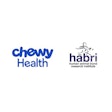The American Feed Industry Association (AFIA) urges the Food and Drug Administration’s Center for Veterinary Medicine (CVM) to keep pace with advances in animal nutrition by modernizing its regulatory policy that currently limits feed ingredients with environmental or production claims from making it to market in a timely way. The AFIA submitted formal comments to the agency in response to its federal docket (FDA-2022-N-2015), stating that these products should be regulated as feeds, not drugs, and that the agency has the authority to make that change.
Upon submitting the letter to the CVM, AFIA’s President and CEO Constance Cullman issued the following statement:
“The FDA is long overdue in allowing U.S. farmers, ranchers and pet owners to access novel animal food products with environmental, production, animal well-being and pre-harvest food safety benefits claims, which is central to improving the health of animals, incentivizing innovation and competing in a global marketplace.
"If we are serious about helping the United States meet its ambitious 2030 methane reduction goals [ https://www.afia.org/news/news-release-items/us-eu-feed-industries-welcome-global-methane-pledge/ ] of 30% below 2020 levels, then these products need to be in the CVM’s review process by 2024, so that they can be approved and make a difference on farms by that deadline. The clock is ticking, and the time to fix this issue is now.”
AFIA’s letter outlines several points for the CVM to consider, including:
• Animal foods with certain environmental claims are a key component in addressing global climate change. Feed ingredients with known efficacy to reduce enteric methane emissions in cattle cannot be sold with marketing claims for methane reduction in the United States due to current CVM policy, whereas farmers and ranchers around the world can knowingly and legally use them for their environmental benefits, putting U.S. farmers at a competitive disadvantage. In addition, the European Food Safety Authority recognizes that animal food ingredients constitute an important group of pre-harvest food safety measures across all livestock and poultry types. Many administration officials, including Secretary of Agriculture Tom Vilsack, congressional leaders and animal industry stakeholders have called for the CVM to modernize its outdated approach so that these products can come to market with accurate label claims.
• Current CVM policy is challenging and narrow. AFIA members are regularly developing new animal food ingredients that go beyond the typical taste, aroma and nutritive value historically associated with animal food, and they are developing game-changing solutions that act solely on or in the digestive tract of animals. However, current CVM policy requires that these products be regulated as animal drugs instead of feed ingredients, a costly and cumbersome process, when these products are clearly feed ingredients and should be regulated as such. AFIA members have products approved in dozens of other countries that they cannot, or are unwilling to, submit for review at the FDA because of its narrow policy interpretations.
• The CVM has the means to make this change. The AFIA is urging the CVM to adopt a modernized, science-based policy that utilizes the food additive petition, the generally recognized as safe (GRAS) process and Association of American Feed Control Officials’ ingredient definition pathways to support industry innovation in safe animal food ingredients that will address existing and emerging issues in the production, use and legally compliant labeling of animal food. The AFIA believes this can be accomplished using these existing regulatory pathways and that the CVM has the existing statutory authority to regulate animal food ingredients that work within the gastrointestinal tract and provide public and environmental health benefits or promote animal growth, feed efficiency and well-being as foods instead of animal drugs, as current policy dictates.
For more information, read AFIA’s full letter at https://www.afia.org/pub/?id=43FBC853-B1D6-D955-C188-F9655767BF5F.














